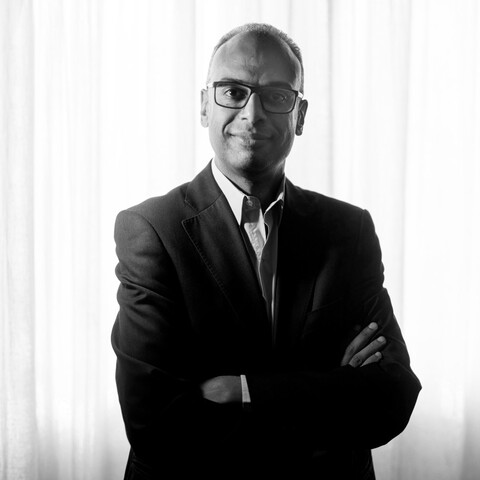Gruber Distinguished Lecturer in Global Justice: Hossam Bahgat

Hossam Bahgat delivered the 2024 Gruber Distinguished Lecture in Global Justice on January 30, 2024, at 4:30 p.m. via Zoom. He was unable to join us in person because the Egyptian government has placed him under a travel ban due to his activism. Bahgat has spent the last 25 years working as a human rights defender and investigative journalist in Egypt. He was the founding executive director of the Egyptian Initiative for Personal Rights (EIPR) in 2002, and as of 2021, he has returned to lead the organization.
Bahgat has a background in political science and human rights law. Beyond his role at the EIPR, he served as board chair of the International Network for Economic, Social, and Cultural Rights (ESCR-Net) and board member of the Fund for Global Human Rights. He is a recipient of the Human Right Watch’s Allison Des Forges Award for Extraordinary Activism, the Catherine and George Alexander Law Prize from Santa Clara University, and the Anna Politkovskaya Award for Courageous Journalism.
Bahgat began by identifying a common theme in his activism, ranging from the Queen Boat incident in 2001, to the Arab Spring protests, to his current activism, as major episodes of moral challenges to human rights. He spoke about addressing questions which seemingly were very easy to talk about from a human rights perspective but then realized that others didn’t share the same moral perspectives. He expressed this sentiment with the Queen Boat incident where he realized that other human rights organizations in Egypt did not defend the rights of LGBTQ people solely due to their sexuality, and this led to the creation of the EIPR, as a personal rights organization defending human rights in the private sphere. The goal with EIPR was not to be a special interest organization, but to defend human rights in a diversity of causes, from LGBTQ rights, to freedom of speech, to women’s rights.
Bahgat spoke both about his experience as a journalist and as an activist. During his talk, he emphasized the difficulty of doing the job of an activist under a government that is so abusive and repressive of human rights. He stated that Egypt is going through its worst human rights crisis since the creation of the republic. Leading the EIPR under the current government presents a whole new set of challenges because there is no free media, parliament, or judiciary, and the government will not meet with them. It is also extremely difficult to work at the community level because of the danger it poses to the activists involved. Instead of putting all activists in jail, the government has simply made it impossible for them to do anything. So now, the primary goal of the EIPR is to find new ways to do activism.
Bahgat also talked about how the Arab Spring has completely changed his thinking and practice of activism. He never thought the government would actually openly kill its own citizens. But post-Arab Spring, that is no longer true. The government is willing to open fire at its own citizens. The ultimate failure of the Arab Spring, he explained, led to a cynicism and a fear to hope for change. Bahgat ended his conversation with Professor Bali by discussing Gaza, Israel’s actions as genocide, and the role of Egypt.
